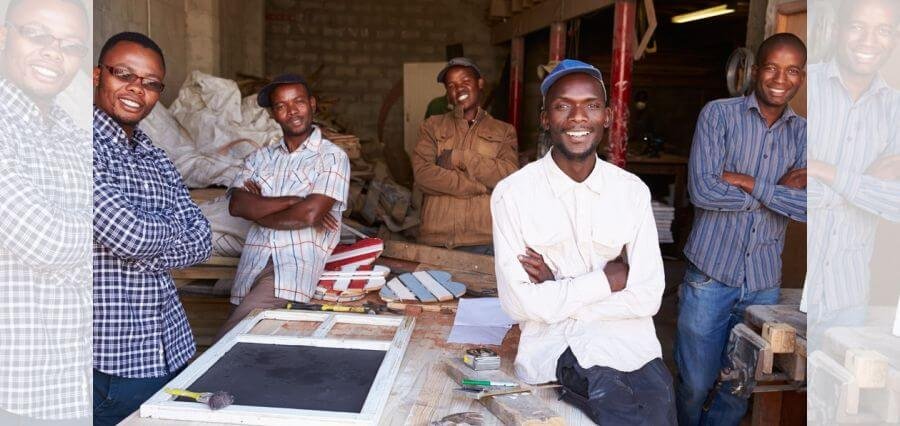Sanjeev Mansotra is currently mentoring Planet One Group. This leading international organization delivers sustainable transformational education, energy, and agriculture to developing nations across Africa, The Middle East, and Asia.
Sanjeev believes improved STEM education (Science, Technology, Engineering, and Mathematics) is the most crucial pillar to sociological transformation and economic development in Africa. Via Planet One, Sanjeev is focused on transforming STEM education throughout Africa. He wants to enable the next generation of African students to become the technological innovators needed to achieve meaningful long-term industrial and economic growth across the region. Mr. Mansotra discusses what improved STEM education would genuinely mean for Africa.
Current Educational Standards in Africa
For a long-time, I have been an extremely passionate advocate for improving the quality and effectiveness of educational delivery in Africa. I have worked in countries such as Ghana, Senegal, and Côte d’Ivoire to work towards these goals for years. But as I write, millions of children across West and Central Africa do not have access to formal education. Or if they do, their education is lacking in many areas. For an accurate picture of where we are, we just need to look at recent data from the World Bank 2022 Western and Central Africa Strategy:
- Due to the quality of their education delivery, children receive only 4.5 years of quality learning in Western and Central Africa.
- Only 31% of children in the region benefit from early childhood education programs
- 32 million children remain out of school in the area, which represents the largest share in all global regions (20% of the school-age population is not in education)
- 80% of 10-year-old children in Western and Central Africa are unable to read and understand a simple text
In reality, only a quarter of African children have access to the childhood learning they deserve (or the education that we expect in more privileged parts of the world). In many African countries, from the very start, a significant number of children are put at a disadvantage – even just going into first grade. They encounter real issues later in their education as they attempt to progress into senior education.
Additionally, the learning that many children currently receive in Africa is often poor quality. In many cases, the quality of teaching delivered means children are often undertaught/underdeveloped in the actual time they spend in African classrooms – due to the quality, and in many cases quantity, of the teaching provision.

There are several fundamental challenges to current teaching provision in Africa:
- With a critical shortage of teachers across Africa (particularly West Africa), 19.7 million primary and secondary teachers must be hired to achieve educational standards by 2030.
- Significant lack of female teachers in Africa – we must put more effort into attracting women to the African teaching profession, who are shown to effectively improve girls’ performance in reading and math without detriment that of boys.
- Teacher training offerings in Africa – teaching training opportunities are commonly inadequate and inefficient, with student teachers being underqualified for programs.
- Pay levels and institutional support for teachers must improve across Africa – to both draw more quality candidates to the profession and mitigate teacher turnover, which currently creates instability in the African teaching profession.
Improving the quality of teaching is critical to the educational outcomes of children in Africa. Not only the test scores and qualification attainment in Africa – but more the children’s long-term cognitive development, social behavior, and economic outcomes for both them and their countries (positive contribution to the development of their country).
The knock-on effect is apparent; a sizeable number of under-served children in the African education system results in many poorly educated adults entering the workforce. Africa faces chronic gaps in qualification attainment, and youth unemployment is even high among the educated and trained.
Governmental emphasis and foreign direct investment (FDI) in STEM are required in the educational system. It will yield substantial individual and collective returns for countries in Africa. The increased supply of suitable teachers and higher-quality educational delivery will significantly increase access to better formal jobs and higher earnings for these children. More importantly, increased access to quality education will build the specialist capital needed to develop regions with low technological advancement and a high level of unemployment due to children often receiving low-quality, non-specialist education.
Specialized technological education is required to equip those who will take over the production and consumption of their countries soon.

Why STEM is Vital for Education and Business Growth in Africa
STEM subjects must be a key focus of new educational projects developed in Africa. STEM learning is vital for Africa because science and technology are the core tenets of nation-building. A country needs technology-focused civil engineers to create an essential infrastructure, whether it’s Senegal or Nigeria. Properly utilizing the natural resources available in the country requires scientists. And to manufacture products and services that can be exported, a country needs technology.
The global tech and engineering industry continues to grow exponentially, regardless of economic challenges. Investment in STEM education will drive forward the socio-economic development of Africa faster than some think. The labor demand in Africa will continue for young people with a vital STEM education. Growth will occur in countries where the government, educational sector, and private sectors recognize the importance of long-term emphasis on STEM education.
The reality is that vast numbers of children in developing countries do not have access to the STEM education they need. Our goal at Planet One is to ensure that Africa, among other regions, has the kind of access to this education. STEM teaching benefits students in many ways. From encouraging students to share creativity and think differently to boosting collaborative skills, STEM education is hugely important in preparing for the modern business world. Aside from soft skills, STEM encourages using technology to solve problems, innovate faster, and become an entrepreneur who can make tremendous changes. Government departments recognize the importance of STEM teaching, even in regions with no current offering.
Taking Action – STEM Education Delivery
The Planet One Group, which I am currently a mentor, has made huge strides towards providing STEM educational advancement in Africa.
Projects by Planet One have a global reach and have touched the lives of more than 30 million children. We have successfully implemented government projects in vocational and capacity-building education projects, with more than 10,000 educational establishments worldwide.
Planet One’s secondary school developments have at their core STEM subjects. We have included Arts subjects for secondary-age students – STEAM secondary schools STEAM (Science, Technology, Engineering, Arts, and Mathematics). Schools from Planet One are about providing modern solutions, and each has three layers:
- Infra-foundation – this is the necessary brick-and-mortar infrastructure.
- Solution Suite – the STEAM solution includes a variety of technology-enabled solutions suitable to deliver the entire new curriculum.
- Ed-Fabric – this is Teaching, Learning, Assessment, and Governance solutions.
The Solution Suite comprises Science (Physics, Chemistry, Biology, Applied Sciences), Technology (Programming, Coding, IoT, Computing, Robotics, AI Programming), Engineering (Basics Engineering, Vocational Labs, Mechatronics), Arts (Makerspace, Automation), and Maths (including Applied Maths). By merging the academic syllabus with vocational training, we can better equip students to graduate with the skills needed to deal with the current business space and new challenges.
West African – Case Study Examples
An example of one of the key projects currently being facilitated by Planet One in West Africa is the development of nine Technical and Vocational Education Training Centres in Ghana, in a project worth 117 million Euros.
The scope of the Ghana-based project is broad, with the development of nine state-of-the-art training centers at the core. The primary Centre of Excellence is in Abrankese, with six ‘Category A’ centers in Boako, Kenyasi No 1, Patuda, Dambai, Salaga, and Guabuilga. Further, two ‘Category B centers will be at Akeym Awisa and Tolibiri in the Lawra District. All the centers will be fully equipped with modern training infrastructure, smart classrooms, labs, and workshops with cutting-edge tech, modern residential facilities for students and staff, sports facilities, and a library.
Sanjeev Mansotra explains: “Each center is designed and equipped depending on its size and the courses that will be offered. Category A centers will have space for more than 1,000 students learning on a large campus with state-of-the-art infrastructure. Category B will be for around 500 students focusing on the entrepreneur and small business mindset.”
As an organization, Planet One ensures that we have a thorough understanding of the educational problem in the country, including efforts to be taken in teacher competency and capacity building.
We then utilize external bodies and partners (such as The World Bank, Deutsche Bank, and The University of Oxford) to assess what’s needed and then offer a holistic approach that can transform a region’s prospects for growth. We focus on STEM learning in Africa as this best translates into the technological innovation the area needs to progress globally. We share the wisdom of our collective experience and partner with long-experienced companies and establishments that can make a real difference.
Authored By Sanjeev Mansotra
Sanjeev Mansotra is an acclaimed educational mentor integral to multiple educational and national building projects across Africa. He is currently a senior mentor to Planet One Group. For more information, visit: https://sanjeevmansotra.com/









